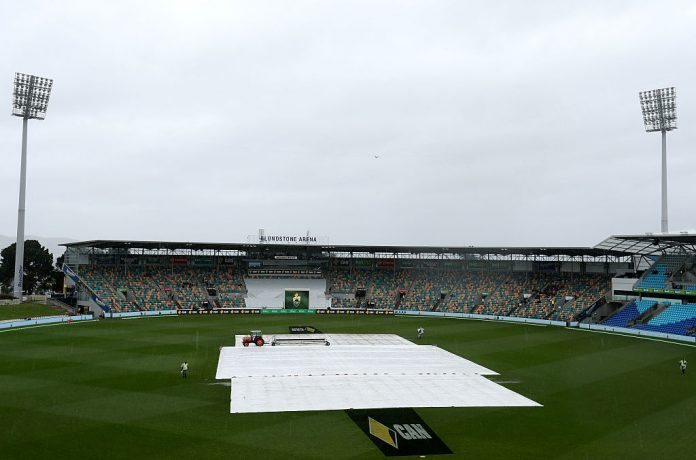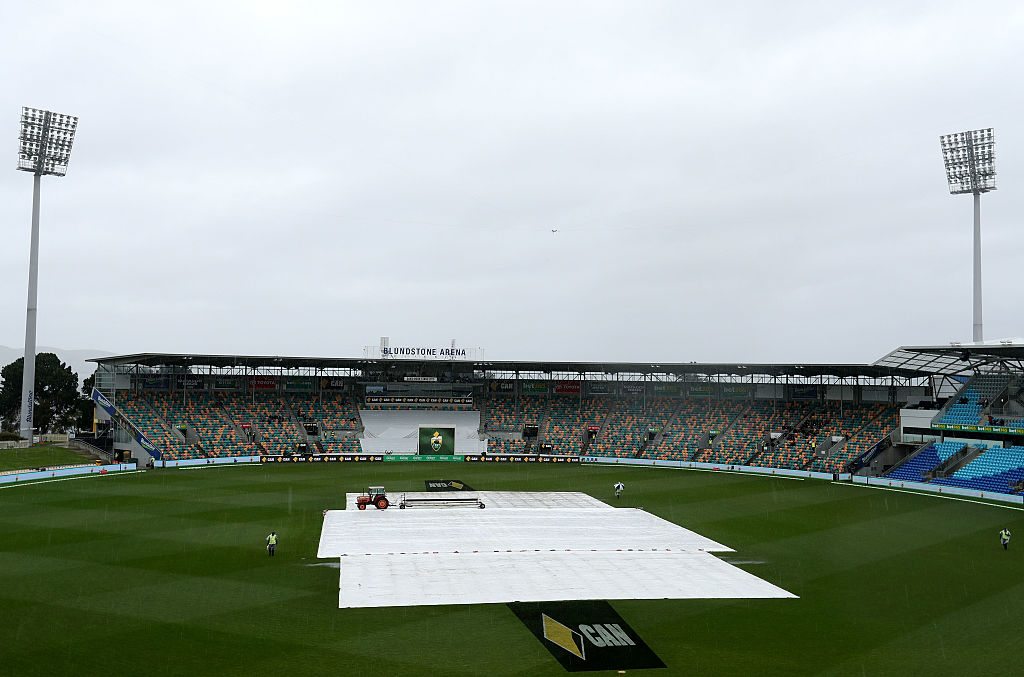

You could quite easily make the argument that South Africa were robbed of victory on Monday night in Perth.
The argument that it's going to cost them dearly is also an incredibly valid one.
In a match that was already reduced to nine overs per side, South Africa would be tasked with a 64-run chase off just seven overs during their opening match of the T20 World Cup against Zimbabwe after more rain fell during the innings break.
It was clear more was on the way as well, so, ever the aggressor, Quinton de Kock elected to rip the Zimbabwean bowling attack in half, roaring to 47 from 18 balls in a display of brute hitting the likes of which we have rarely seen before.
But the rain would ultimately beat South Africa to the punch.
The umpires did everything they could to keep the game running - and you could argue too much given the wild scenes as a bowler and wicketkeeper both slipped over on the square.
Richard Ngarava had to be carted off the ground, with his injury not looking pretty at all.
It almost appeared as if the situation of the match - the fact that South Africa weren't going to need long to win, or that they were only a matter of overs away from the five-over mark to constitute a result, swayed the umpires thinking.
It showed all in one the dangers of allowing match situation to influence a ground, weather or light decision, but that in itself is a story for another day.
When they finally did come from the ground after three overs with virtually no chance of resuming, the Proteas found themselves on 0 for 51, just 13 runs shy of the total they needed off seven overs.
A Duckworth-Lewis calculation showed that if the game was reduced to 6 overs, they would need to score just four more runs for a total of 55, while a loss of two overs had South Africa already ahead of the par score.
The loss of two overs is the critical mark, given five overs is what constitutes a game, and why the argument for a rule change around results from a Duckworth-Lewis finish where a match 'technically' hasn't been constituted exist.
South Africa already had enough runs to win the game. All they had to do was put the stumps back in and walk back onto the field, with one ball being bowled.
At that point, they could have shaken hands and handed South Africa the critical two points in Group 2 of the T20 World Cup's Super 12 stage.
Instead, because that one ball couldn't be bowled, and the total as a result not shrunk, the Proteas have to settle for just a single point, and are now in grave danger of missing out on the semi-finals unless they can go on a four-match winning streak through the rest of the group matches.
Rain was always going to play a part in this T20 World Cup, and the vicious nature of qualifying out of the group stage makes it somewhat likely to decide who will ultimately go through to the semi-final, but should it really when a team has already won the game, should it have been shortened to the minimum overs possible to constitute a result?
The argument exists that without having the opportunity to bowl five overs, Zimbabwe couldn't take wickets which then changes the D/L par score, but in a circumstance such as this, one more ball being bowled wouldn't have changed the total score as it became the target - a target the Proteas were already north of.
While cricket has plenty of tricky intricacies with its rules when it comes to the Duckworth-Lewis method, this one feels like one that could easily be changed.
If you're already past the minimum overs target at the time of an interval with no further play, that should be recorded as a win.
It's as simple as that.





